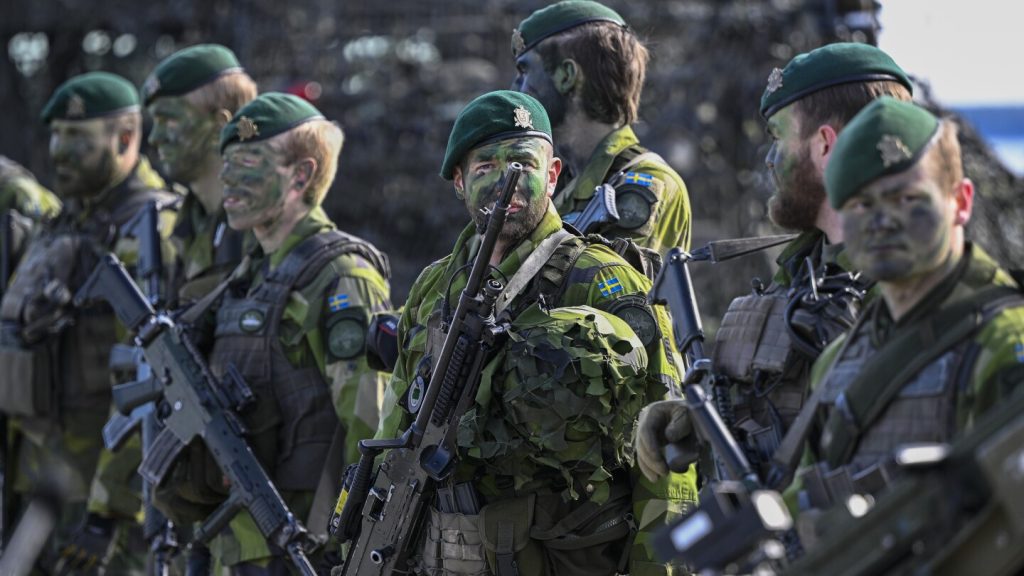The recommendation for Sweden to increase its military budget by nearly 54 billion kronor ($5 billion) by 2030 was made by a Swedish parliamentary committee on Friday. This recommendation comes as Sweden recently joined the NATO alliance, moving away from its longstanding policy of neutrality following Russia’s invasion of Ukraine in 2022. The Defense Committee, comprised of representatives from eight political parties in the Swedish parliament, emphasized the need for stronger air defenses, increased number of conscripts, and other military enhancements in light of the country’s NATO membership and the current security threats. The report also suggested expanding Sweden’s air defense capabilities to counter threats from unmanned flying craft, acquiring more missiles, and increasing the navy’s personnel.
The committee’s recommendation to increase the number of conscripts to 12,000 by 2032 aligns with similar moves made by Sweden’s Scandinavian neighbors. Norway recently announced plans to increase the number of conscripted soldiers from 9,000 to 13,500 by 2036, while Denmark aims to extend conscription to women and lengthen military service from four to 11 months. Swedish Defense Minister Pål Jonson expressed support for the committee’s proposal, citing the serious security challenges in the world as a reason for the necessary increase in military spending. Sweden’s current military budget for 2024 stands at approximately 119 billion kronor ($11 billion), and it is anticipated that the center-right coalition led by Prime Minister Ulf Kristersson will likely adopt most of the commission’s recommendations outlined in the report.
The decision to join NATO and increase military spending reflects Sweden’s response to the changing geopolitical landscape and evolving security threats in the region. By bolstering its defenses and expanding its military capabilities, Sweden aims to enhance its national security and contribute to the collective defense of the alliance. The emphasis on strengthening air defenses, acquiring advanced weaponry, and increasing personnel demonstrates Sweden’s commitment to being a reliable ally within NATO and being prepared to respond to potential threats. The proposed investments in the military are seen as essential for safeguarding Sweden’s sovereignty and deterring potential adversaries from engaging in hostile actions against the country or its allies.
The recommendations put forth by the Defense Committee underscore the need for Sweden to prioritize defense preparedness and invest in modernizing its armed forces to effectively respond to emerging security challenges. With the evolving nature of warfare, including advancements in technology and the increasing sophistication of military threats, Sweden recognizes the importance of adapting its defense capabilities to address these new realities. The proposed increase in the number of conscripts, acquisition of advanced weaponry, and expansion of air defense systems reflect Sweden’s proactive approach to enhancing its military readiness and ensuring its ability to defend its territory and interests.
As Sweden aligns itself more closely with NATO and seeks to boost its military capabilities, the country is poised to play a more active role in regional security and contribute to the collective defense of the alliance. By investing in its defense infrastructure and increasing its military budget, Sweden aims to strengthen its deterrence capabilities and enhance its ability to respond to potential threats. The recommendations outlined in the report signal Sweden’s commitment to upholding its security obligations as a NATO member and underscore the country’s determination to safeguard its sovereignty and protect its citizens in an increasingly complex and uncertain global security environment.


